And so the reckoning begins. As frantic Afghans wrestle with the agonising, life-and-death choice between staying in Kabul and risking execution by the Taliban or running the gauntlet of checkpoints around the airport in search of freedom overseas, it’s noises off in the West. Pundits and policy- makers pontificate, grizzled generals rue another foreign adventure ending in defeat and the media provide a live stream of grief and anguish.
‘I’m terrified,’ an Afghan friend and former colleague in the Ghani government WhatsApped me as Kabul fell. The Taliban had already killed two of his close colleagues and were searching for him. ‘I need to get out. Now it is time that our international friends do something to support me.’
But we won’t, will we? Headline figures of 20,000 Afghans being given the right to resettle in the UK over five years will be far too little far too late — almost certainly no use to my friend and untold others like him. President Biden has pulled the plug, and the Afghans, together with the Brits and other Nato allies, have gone out with the bathwater.
Two books offer radically different perspectives on the war in Afghanistan. Craig Whitlock, a seasoned national security reporter for the Washington Post, provides the macro view from 40,000-feet, an unputdownable account of imperial hubris, blundering and deception. Toby Harnden, an Anglo-American author and journalist, chooses a micro focus with an on-the-ground, action-packed, shoot-’em-up, all-American gunslinging adventure.
First Casualty is the highly charged story of the CIA-led first American incursion into Afghanistan in the immediate aftermath of al Qaeda’s 9/11 attacks in 2001. Harnden writes of how the CIA pipped the Pentagon to the post, to the intense fury of the defense secretary Donald Rumsfeld. On 13 September, just two days after the largest terrorist attack in US history, Joseph Cofer Black, the head of the CIA’s Counter-terrorism Center, advised President Bush that CIA teams and special forces could take down the Taliban and eject al Qaeda from Afghanistan: ‘When we’re through with them they will have flies walking across their eyeballs.’
Bush liked what he heard. When, a couple of days later, a State Department official advised him that the first response to 9/11 should be a diplomatic overture to the Taliban, the president was unimpressed. ‘Fuck diplomacy. We are going to war,’ he replied.
Cue three months of adrenaline-laced guerrilla fighting alongside the Northern Alliance, bereft of the charismatic Afghan Tajik leader Ahmed Shah Massoud, who had been assassinated by an al Qaeda team two days before 9/11. By 17 October, the CIA’s Team Alpha was in northern Afghanistan, welcomed by General Abdul Rashid Dostum, an Afghan Uzbek warlord astride his favourite white charger Surkun.
The heart of Harnden’s readable book is the Battle of Qala-i Jangi, a bloody, six-day revolt of around 400 al Qaeda prisoners in a 19th-century fortress designed by British engineers during earlier imperial adventures in northern Afghanistan. It was here, surrounded by hundreds of al Qaeda corpses, that the US recorded its first casualty. Almost 2,500 followed over the next two decades, a figure dwarfed by the 66,000 killed among the Afghan security forces, who on 12 August were accused of not fighting for their country by President Biden.
Harnden’s scoop is to have convinced the CIA to give him access to its key men from those early days. One might reason-ably question the agency’s motives for doing so, while noting that this is likely to be one of the few ‘positive’ books written about the war in Afghanistan for years hence — if you exclude the gloating to come from Pakistan, depressingly one of the victors of the conflict, and sections of the Muslim world. Like most western books about Afghanistan, it is largely one-sided, relying heavily on American, rarely Afghan, sources. Nevertheless, the strong suggestion that, had the US confined its mission to kicking out the Taliban and denying al Qaeda a safe haven, things might have looked very different 20 years later is well judged and will be contested in future decades.
If a victorious Bush had not rejected the very Afghan post-war deal with the Taliban brokered by the US-backed President Hamid Karzai in 2001, perhaps the three-month American insurgency in Afghanistan would never have expanded so ruinously — first into a US-led invasion and occupation, and latterly into an exercise in nation-building, complete with an expanding cast of advisers on everything from stabilisation, governance and elections to gender, counter-narcotics and monitoring and evaluation.
The Afghanistan Papers is a deliberate nod to The Pentagon Papers, which in 1971 sensationally revealed Lyndon B. Johnson’s systematic lies to Congress and the American people about the Vietnam War. Whitlock, a three-times Pulitzer Prize finalist, brings to bear the quintessentially American reporter’s unrelenting focus on detail and terrier-like persistence, as evidenced by his multiple freedom of information requests and the three-year legal battle it took to get the Office of the Special Inspector General for Afghanistan Reconstruction to disclose its previously secret ‘Lessons Learned’ interviews with key figures.
Whitlock makes much use of these ‘Lessons Learned’ reports. They have achieved almost mythical status in the post-war ‘stabilisation’ world, despite the wretched truth, known to everyone involved, that they are never listened to or acted upon. What we learn from ‘Lessons Learned’ is that we do not learn lessons from history.
Wise advice, as well as truth, has always been one of the great casualties of war. In Herodotus’s Histories, written around 430 BC, Artabanus first advises his brother Darius, the Persian king, against war with Scythia, and later his nephew Xerxes against war with Greece. Neither listen and both are ruined. Imperial hubris leads to nemesis: this is how empires fall. ‘It is God’s way to bring the lofty low. Often a great army is destroyed by a little one.’ Certainly there was no shortage of excellent advice about the war in Afghanistan offered to many American leaders by many people over many years.
To take just one example, an independent, unpublicised assessment for the US military in 2006, led by the retired US General Barry McCaffrey, was excoriating. It found the Afghan army ‘miserably under-resourced’ and the police worthless — ‘badly equipped, corrupt, incompetent, poorly led and trained, riddled by drug use’. Right on both counts. The Taliban would ‘soon adopt a strategy of “waiting us out”’. They did. As for the country’s hapless political leaders, they were ‘collectively terrified that we will tip-toe out of Afghanistan in the coming years — leaving Nato holding the bag — and the whole thing will again collapse into mayhem’. They did. It has.
At times, notwithstanding all the advice, American leaders appeared transfixed like rabbits in the headlights. Never mind the complexities of Afghanistan, even the most basic understanding of the place appeared vanishingly elusive. Rumsfeld couldn’t even manage the good guy-bad guy dynamic. ‘I have no visibility into who the bad guys are in Afghanistan,’ he complained in one memo to his intelligence chief almost two years after the war had started. We must thank Whitlock for his tenacity in securing access to Rumsfeld’s so-called ‘snowflake’ memos, which ran to 59,000 pages between 2001-6. They make astonishing reading. A fourth-time-lucky Pulitzer would be a worthy reward.
The Afghanistan Papers is a devastating blast against the lies and deceit which steadily deepened over the years. A chapter on ‘Lies and Spin’ pulls no punches: ‘What began as selective, self-serving disclosures hardened into wilful distortions and, eventually, flat-out fabrications,’ Whitlock writes. It’s not that the truth wasn’t there or difficult to find, it was simply a case of the US leadership, civilian and military alike, deliberately suppressing it. After the Bush surge of 2007, the American commanders’ relentless, reality-denying statements became ‘so unwarranted and baseless’ that they ‘amounted to a dis-information campaign’.
Although the focus of both books is American, this should not spare British blushes. Where America led we meekly followed when we, more than any other country, should have known better. After three mostly catastrophic Anglo-Afghan Wars in the 19th and 20th centuries, one might have hoped to avoid a fourth in the 21st. The Soviets had provided a chastening reminder of the perils of invading Afghanistan between 1979-89. More recently our nation-building adventures in Iraq suggested the British emperor had no clothes.
Fighting a successful, short-lived counter-terrorism campaign in Afghanistan was one thing. But mission-creeping into an ever-shifting 20-year war against drugs, corruption, kleptocracy and warlordism, fighting for nation-building, democracy, free and fair elections and women’s rights has proved utterly — and quite predictably — beyond us, with tragic consequences for the people of Afghanistan. ‘Losing is not an option in Afghanistan,’ the American General Eikenberry declared. It was.
If the past 20 years have taught us anything, which is as doubtful as it is debatable, perhaps it is this. A superpower can indeed dispense with diplomacy and go to war. But in so doing it might just end up destroying itself, not to mention its allies and the very nation it set out to assist.
Got something to add? Join the discussion and comment below.
Get 10 issues for just $10
Subscribe to The Spectator Australia today for the next 10 magazine issues, plus full online access, for just $10.
You might disagree with half of it, but you’ll enjoy reading all of it. Try your first month for free, then just $2 a week for the remainder of your first year.

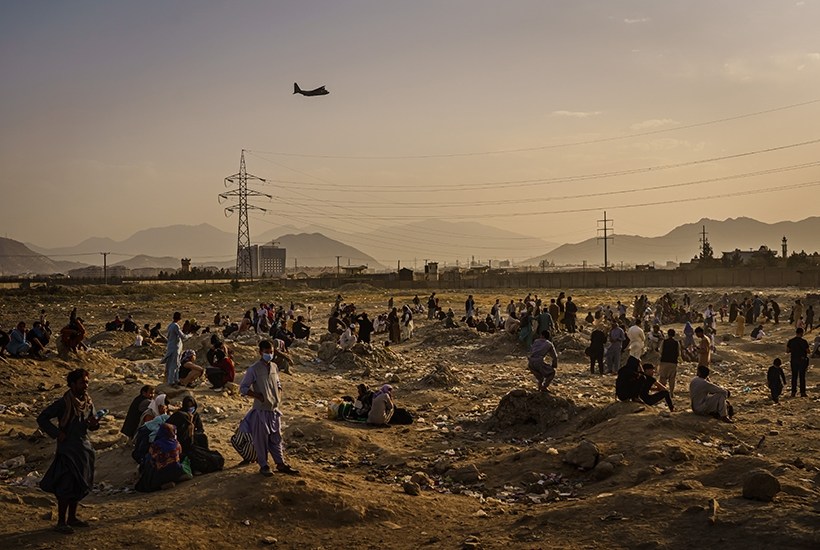
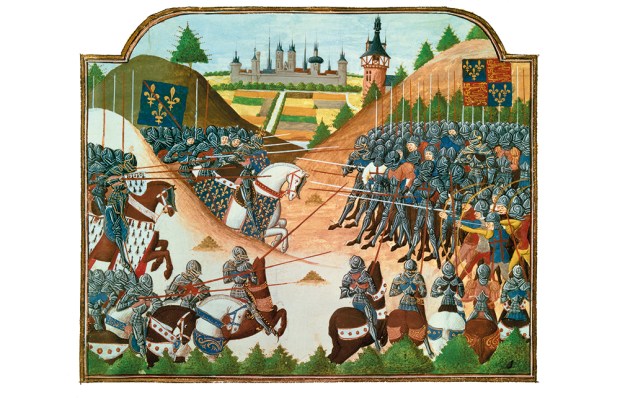

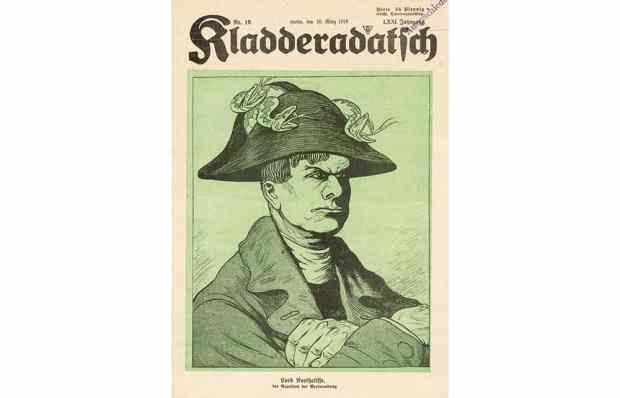
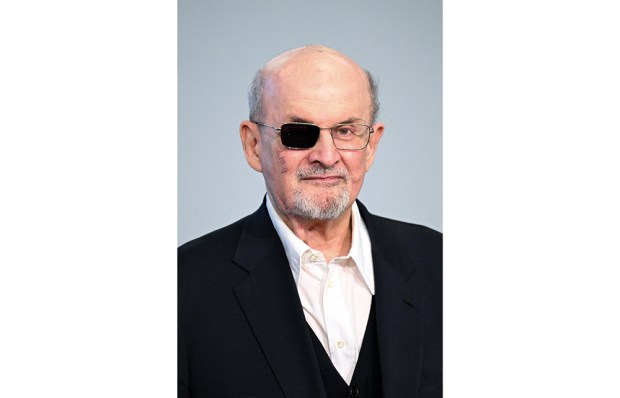
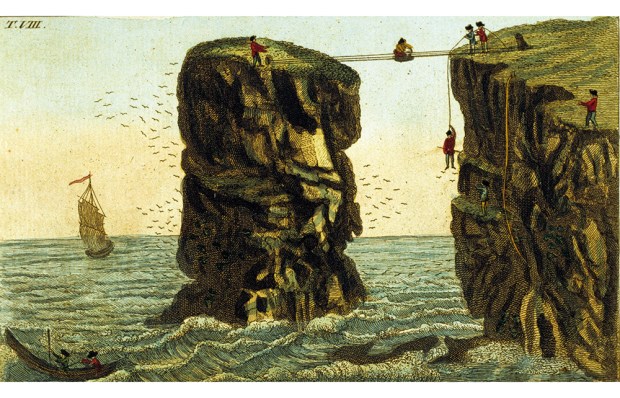
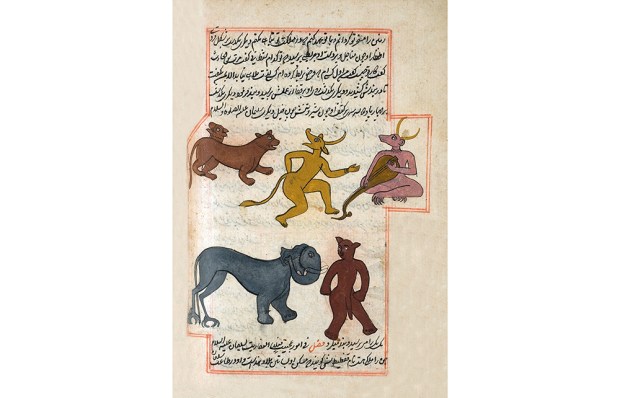






Comments
Don't miss out
Join the conversation with other Spectator Australia readers. Subscribe to leave a comment.
SUBSCRIBEAlready a subscriber? Log in